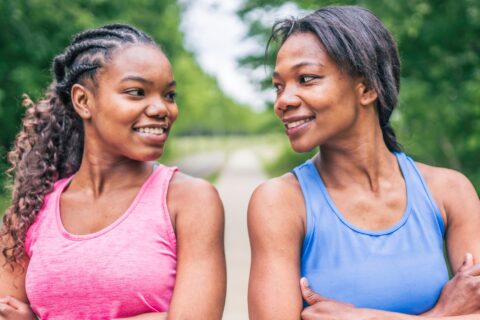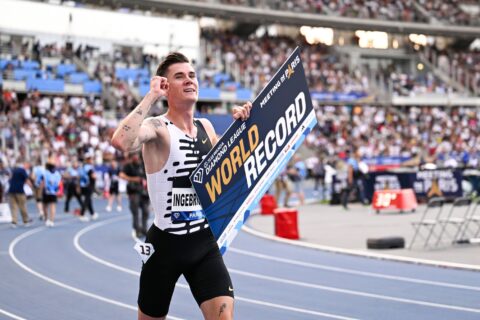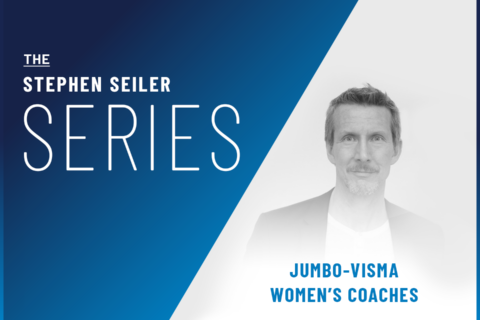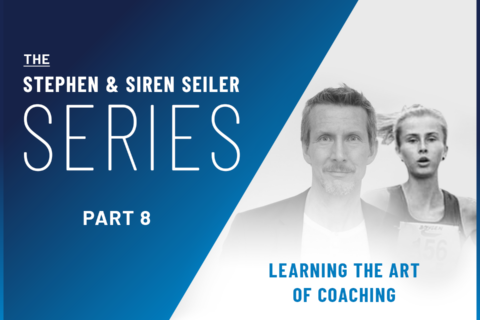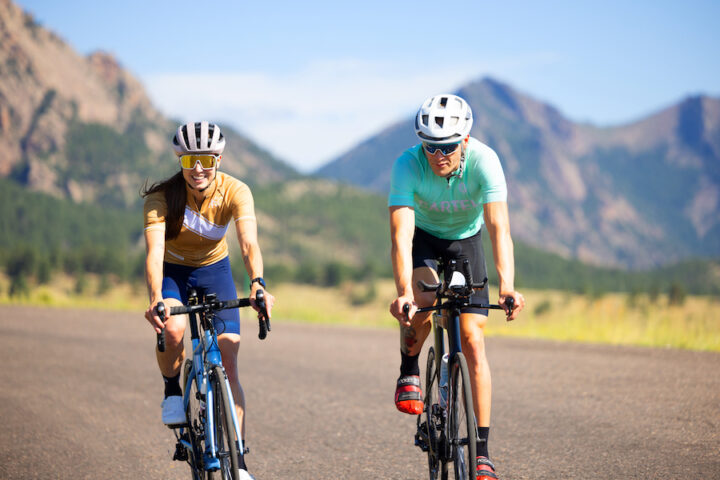Scientists have worked closely with athletes and coaches to define the polarized model and explain how it works. Who leads the way? Dr. Seiler talks about the scientific process playing out in valuable ways in both research and the real world.
Video Transcript
Oftentimes for us, there’s a little push and pull between coaches and between scientists, which one is leading the other? For research like this, what are your feelings on the observational side of research versus the experimental side of research? Do they both have a place? Should coaches be informing the scientists? Should the scientist be informing the coach? How does that work out?
An Emerging Partnership between Coaches and Scientists
I think that’s been the most enjoyable and fascinating kind of evolution in sports science, and in the whole process over the last 20–25 years. When I started my career, the athletics department at a university and the sports science department, they could be in the same building and they would never talk to each other. They were just on two different planets, mentally.
When I came to Europe, came to Norway, and Norway had started what was called Olympia Tulpan, which was this place where across sports disciplines, athletes, coaches, scientists, were supposed to be in a kind of a “crucible” working together and interacting. The Australian Institute of Sport had that same drive and they were very successful for many years. They were able to publish great research, and at the same time, win lots of gold medals in the Olympics. We started seeing this kind of symbiosis where it was possible to do both. You could do research, you could win gold medals, you could facilitate the process. That has really expanded in the last couple of decades, and it’s been very rewarding to be part of that.
What it fundamentally comes down to is two things.
- Respect: Both sides have knowledge that’s relevant.
- Trust: We’re not going to try to hurt each other, that we’re trying to help each other.
If we have respect for each other’s knowledge, and we trust each other, then great things can happen. That is really what we see now in the best environments, in the best performance environments. There’s a high degree of respect, that I respect the coaches I work with, I know they have tacit knowledge, they may not be able to exactly describe it in my physiological terms, sometimes they can quite well, trust me!
But, if they can’t, then we just we develop our dictionary together, to put it that way, so that we make sure that we are understanding each other, from our slightly different “dialects” of trying to get at this language of coaching and training and physiology and psychology and so forth.
Scientific Research and Coaching Development
Put it all together, we’ve got our own little dictionary, and then we can really work well together, and start seeing research questions and developmental questions. For me, it’s called a research question. For them, it’s a development issue. How do we keep facilitating more development, same thing for them. They’re going to have to learn, they’re going to have to figure something new out, they’re going to have to test, and try and fail to get development, to achieve a new level of development. They are, the coaches are using a scientific method, as you say, they’re observing, they’re noting their results, they’re hypothesizing, and they’re iterating. This has been going on forever.
I always tell people all of the great innovation, in sports technique, for example, you know, whether it’s the butterfly in swimming, or the V-style in the cross-country skiing, or the Fosbury flop, or the or the shark, it’s the athletes that have come up with, it’s not scientists.
Then, a scientist comes in and says, “I’m going to explain how this works. I’m going to explain why you’re jumping higher than you were before.” But they’re already jumping higher, it wasn’t the scientist that did that. Now, they’re just gonna come in and say, well, the Fosbury flop works because you keep your center of gravity, below the bar. This has been the kind of the process for decades, and now we’re just trying to kind of squeeze it more together. I think we’re succeeding.
I think one of the reasons I was more respectful of the knowledge of coaches was: 1) I wanted to be a coach before I wanted to be a scientist. That’s the first thing I guess. And, 2) Even as a teenage athlete, I experienced coaches that were very “quantified” in their thinking. They quantified things, I was running repeat 150s in my senior year, and I felt like I wasn’t doing so well, and it didn’t feel right. The coach said, “Well, let’s pull out your [stats] from last year,” and he pulls out the same workouts, he tells me exactly what my times are for the year before. I was like, “Huh? You know how fast I ran for those repeats? I don’t know how fast I ran.” But he had recorded it, and so then I understood, Okay, he’s paying attention. Coaches do that, and that sounds a lot like science, doesn’t it?
Individualization via Science and Technology . . . and Good Coaching
Do you predict changes occurring in training or thinking, whether it’s polarized or anything else in the next 10 years?
I don’t think the big concepts are going to suddenly change, the basic physiology hasn’t changed, and our human genome is not going to change meaningfully in the next few years. That I don’t see, but what I do see is individualization. Being able to do a better job of individually optimizing, because Stephen’s got his set of fiber type, his heart, his various issues, his mentality, and age, because we’re dynamic. We’re not the same athlete today that we were five years ago, or 10 years ago. That’s also part of this, is that if you’re in this in the long game and if you’re not a pro, then you’re thinking about it over years and years and years of having enjoyment in your sport, at 30, at 40, at 50. Well, 50-year-old me is not the same as 30-year-old me was, I gotta admit it, I try hard. I can do okay, but I am not quite as fast as I was when I was 30. I have to accept some of these things. I can still do hard workouts, I can still do tough interval sessions. But, I probably need more rest in between. This is also part of that. We’re trying to learn how to measure these signals and optimize a bit so that Stephen at 30, and Stephen at 50, can still enjoy training and still get the most out of it, given that set of conditions that has changed for this athlete. That’s where we’re at now is doing a better job at monitoring and maybe giving coaches better tools.
But having said that, I gotta say, good coaches. these are the tools they have eyes, they see. They see their athlete, they look them in the eyes, they see how they’re doing it, the breakfast table. Still, coaching and monitoring is still very much a function of good eyes, good ears, listening to your athlete, trust, respect, honesty, feedback, and seeing things seeing things around the breakfast table, at training camps, and so forth. Those are still the most sensitive indicators we have in training monitoring. Still better than lactate still better than heart rate variability, and so forth.
So as much as I’m optimistic about technology in the future, I’m also optimistic that coaches will still matter in 10 years.
